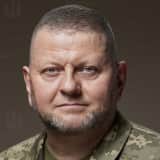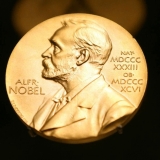Russians in Paris – Olympics and War Crimes
Two-thirds (ten out of fifteen) of Russians who will compete under a neutral flag in Paris support Russian war crimes. The news of this last week spread across the world and Ukrainian media. Only the International Olympic Committee (IOC) continues to turn a blind eye to these facts.
Lawyers from the international foundation Global Rights Compliance, which advises Ukrainian prosecutors in their investigations of war crimes, have been in contact with the IOC, repeatedly sending evidence that shows that Russian and Belarusian athletes have violated the IOC’s own ‘rules of neutrality’. But the IOC prefers to turn a blind eye to its own rules and human rights policy, as well as international law in general. The IOC’s wilful disregard of the Olympic spirit and its own responsibilities under UN Guiding Principles of Business and Human Rights - that mandate an obligation to respect human rights - is stark and unambiguous.
What does neutrality status mean and what are the sanctions for violating it?
After the start of Russia's full-scale invasion of Ukraine, the International Paralympic Committee, the day before the 2022 Winter Games, prohibited Russian and Belarusian athletes from participating in Beijing.
The IOC initially followed the same approach, recommending that all Russian and Belarusian athletes be banned from international competitions.
Yet, as Russia's aggression intensified and the war crimes and crimes against humanity multiplied, the IOC decided it was time to ease the conditions for participation of Russians and Belarusians in Paris. It allowed representatives of the aggressor states to compete for Olympic medals as so-called ‘neutral athletes’. This meant they should wear different uniforms with no national flag, perform under a specially created anthem for neutral athletes, and the medals won would not belong to Russia or Belarus, only to the athletes. As previously confirmed by the IOC, if athletes support the war in any way, they would violate this ‘neutral’ status and necessarily be prohibited from participation.
Usefully, the IOC spelled out exactly what ‘support for war’ meant. The violations included:
- Any public manifestation of support for Russia's war against Ukraine;
- Use of the Russian aggression symbol ‘Z’, the St. George's colours, military symbols and slogans, etc., in competitions or in the media (including social media through retweets, reposts, etc.);
- Any contractual links to the army or other militarized structures associated with the security forces of the Russian Federation or the Republic of Belarus (such as CSKA (the Central Sports Club of the Army) or the Dynamo society, etc.)
And it was according to these rules, spelled out in black and white, that we, GRC, investigated the IOC’s so-called ‘neutral’ athletes. It turns out that most of them support the war in Ukraine or are directly involved in militarized structures that continue to perpetrate the crimes against innocent men, women and children in Ukraine.
Two-thirds of Russian athletes support war crimes!
As soon as the first lists of potential participants from Russia and Belarus appeared, my team and I started analysing the evidence. And from the get-go it became crystal clear that most of the Russians and Belarusians had unequivocally and repeatedly violated the rules of neutrality. We decided to help the IOC and sent them a letter with information about serious violations by athletes from these two countries. At first, we received an encouraging response from the IOC: "you can be assured that the Athlete Individual Neutrality Review Panel (AINERP) takes its task very seriously. It reviews individual neutral athletes in accordance with the decision of the IOC Executive Board and the established principles. The Panel can benefit from new information from a variety of sources."
On 15 July 2024, the IOC published the first list of those it deemed ‘neutral’. GRC then set to testing the IOC’s conclusions We only used data from open sources. GRC found significant evidence of athletes violating the IOC’s principles, namely by supporting the illegal invasion of Ukraine and the crimes committed therein. In addition, work done by Ukrainian journalists and civil society organisations, including by journalists from Watchers.media (Olga Khudetska and Artem Khudoleev) and "Base of Ukrainian Sports", also found evidence of violations. GRC sent another letter to the IOC, calling on them to revoke the eligibility of those who had violated the rules. Despite repeated attempts, the IOC went silent and refused to engage with the evidence.
The Olympic Spirit?
Among the Russian athletes included in the dossier is cyclist Alyona Ivanchenka, who has openly supported posts on social media that questioned Ukraine's right to exist. In other words, Ivanchenka supports the notion that Ukrainians who refuse to adopt Russian identity should be detained, ‘reconditioned’ or destroyed.
Tennis player Alyona Vesnina violated the rules by supporting the so-called "military feats" of Russian soldiers who kill Ukrainians. Vesina not only supports these war crimes but is proud of the Russian symbol of war and aggression – ‘Z’ - a symbol that now sits alongside the swastika as a sign of the worst of human nature.
The Belarusian contingent includes a rower, junior sergeant of the Armed Forces of Belarus, Yevgeny Zalatyi, as well as swimmer Anastasia Shkurdai, who is a representative of the Sports Committee of the Armed Forces of Belarus.
So, what happened to the IOC’s principles? What happened to the IOC’s respect for UN Guiding Principles and human rights? What happened to Thomas Bach, the IOC’s President’s stated view that "competition with athletes who respect the Olympic Charter can serve as a catalyst for dialogue, which is always a first step to achieving peace?" What about those who do not respect the Charter? What steps are they, and now the IOC, taking?






